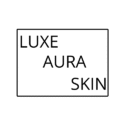💧 Introduction: The Truth About Face Oils and Aging Skin
Face oils get a lot of mixed opinions. Some swear by them for their glow and softness, while others avoid them in fear of clogged pores or breakouts.
So what’s the truth? Can face oils actually help aging skin — or could they make it worse?
Let’s break down how oils work, which ones are anti-aging allies, and which you should skip.
🧴 1. How Face Oils Work — And Why Mature Skin Loves Them
As we age, our skin produces less natural oil (sebum), which can lead to dryness, dullness, and more visible wrinkles.
Face oils help replace that lost moisture by sealing in hydration and reinforcing the skin barrier — keeping your skin smooth, plump, and protected.
Unlike moisturizers (which hydrate), oils lock in moisture and prevent water loss. When layered correctly, they can make your skin feel softer and look more youthful almost instantly.
💡 Pro tip: Apply face oils after your serum or moisturizer to seal everything in.
🌿 2. The Best Anti-Aging Oils That Actually Work
Not all oils are equal — some nourish and repair, while others can clog pores. Here are the top anti-aging oils backed by science and real results:
🥑 Argan Oil — The Vitamin E Powerhouse
Rich in vitamin E and fatty acids, argan oil restores elasticity and protects against free radical damage.
Best for: Dry, mature, or sun-damaged skin.
👉 Check Argan Oil on Amazon
🌹 Rosehip Seed Oil — Natural Retinol Alternative
Packed with vitamin A (retinoic acid) and vitamin C, rosehip oil boosts collagen and fades pigmentation — perfect for dull or uneven skin.
Best for: Fine lines, discoloration, and rough texture.
👉 See Rosehip Seed Oil on Amazon
🌰 Marula Oil — Lightweight & Fast-Absorbing Glow
Marula oil is rich in antioxidants and absorbs quickly without greasiness. It helps smooth fine lines while protecting against pollution and UV damage.
Best for: Normal to dry skin types.
👉 Shop Marula Oil on Amazon
🌻 Squalane — Non-Greasy & Ideal for All Skin Types
Squalane mimics your skin’s natural oils but doesn’t clog pores. It strengthens the barrier, reduces redness, and locks in moisture.
Best for: All skin types, including oily or sensitive.
👉 Buy Squalane Oil on Amazon
🥥 Bonus: Jojoba Oil — The All-Rounder
Jojoba oil closely resembles natural sebum, helping balance oil production while hydrating. It’s excellent for combination skin and can calm irritation.
Best for: Balanced hydration and barrier support.
👉 View Jojoba Oil on Amazon
🚫 3. When Face Oils Can Make Aging Skin Worse
Here’s where things can go wrong:
Using the wrong oil (like coconut oil) — can clog pores and cause breakouts.
Skipping water-based hydration — oil alone doesn’t hydrate, it only seals in what’s already there.
Layering incorrectly — always apply oil last, after serum or moisturizer, to avoid blocking absorption.
If your skin feels greasy or starts breaking out, you might be using too much or the wrong oil for your skin type.
🌟 4. How to Use Face Oils for Anti-Aging Benefits
For best results, follow this simple order:
Cleanse your face.
Apply your serum (vitamin C, retinol, etc.).
Use a moisturizer.
Finish with 2–3 drops of facial oil to seal in hydration.
💡 Nighttime tip: Oils work best at night when your skin naturally repairs itself.
💬 5. Final Thoughts: The Right Face Oil Can Be a Game-Changer
So — can face oils help with aging skin?
✅ Yes, if you choose the right one for your skin type and layer it correctly.
They can restore lost moisture, protect from damage, and bring back that youthful glow that creams alone can’t achieve.
Whether you go for rosehip, argan, or squalane, consistent use will help your skin stay smoother, softer, and radiant — naturally.
